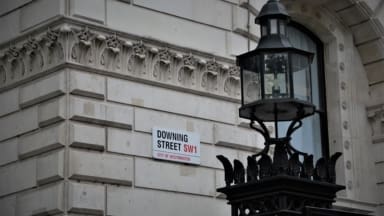
BTOM outlines the new regime of border controls, with the aim to create a seamless new digital border. The new model is to harness new technology, make best use of real-time data and better target risk to reduce friction and costs for businesses and consumers and create a simpler yet secure transfer of goods across the UK border. Alongside the development of a world-leading border for trade, BTOM introduces a new (global) regime for security and biosecurity controls which includes bringing in controls on imports from the EU.
Border Target Operating Model and plants
Regulated plants and plant products have been categorised into high, medium and low risk categories for imports from both EU and non-EU countries. Controls are to be weighted against the biosecurity risks posed to GB: the higher the risk category of a plant or plant product, the more biosecurity assurances required, in the form of import controls. Some plants and/or plant products will undergo fewer inspections or are not regulated at all. Certain goods will remain prohibited entirely. Inspection frequencies will then remain responsive to risk and changed according to assessed biosecurity threats. Businesses importing plants and/or plant products from the EU to GB, need to start preparing for the new plant health import requirements coming into force from 31January 2024 and 30 April 2024.
Further delay
Having consulted with businesses and the border industry, the government have now agreed to a delay (for the fifth time due to fears that new red tape at the border will fuel inflation) until January 2024 for the introduction of remaining sanitary and phytosanitary controls. This including, full customs controls for non-qualifying Norther Ireland goods. However, it has been reported (though unconfirmed) that the government may delay the rollout to avoid further cost pressures on UK consumers created by the extra trade friction at the border.
Business groups have complained that businesses in the UK have been left at a competitive disadvantage to their EU counterparts as Brussels imposed full post-Brexit border checks on UK imports in early 2021. The continued delay will prolong uncertainty for all businesses importing Sanitary and Phytosanitary (SPS) goods (animal, plant or public health) goods to the UK from the EU and the rest of the world.
With over 95% of businesses in the horticultural trade importing some sort of plant product and engaging in long-standing global trading relationships, the Horticultural Trades Association (HTA) and its members fully support the plans to enable the horticultural sector to trade internationally and thrive while safeguarding biosecurity and plant health. However, just as it is for other industries more certainty is required to assess the full picture of what the future of the borders will mean for UK horticulture. Furthermore, the details as to how BTOM aligns with other legislation, such as the Windsor Framework, are also required.
Planned timeline
The BTOM confirms implementation of controls through three milestones;
- 31 January 2024 – Introduction of health certification on imports of medium-risk animal products, plants, plant products and high risk food (and feed) of non-animal origin from the EU.
- 30 April 2024 – Introduction of documentary and risk-based identity and physical checks on medium-risk animal products, plants, plant products and high-risk food (and feed) of non-animal origin from the EU.
- 31 October 2024 – Safety and Security declarations for EU imports will come into force. Alongside this, the government will introduce a reduced dataset for imports.
Further detail is provided on the UK Single Trade Window which will underpin the new approach to controls. When fully operational, this will provide a single digital gateway for users to provide the data needed to trade and apply for licences and authorisations for trusted trader schemes.

